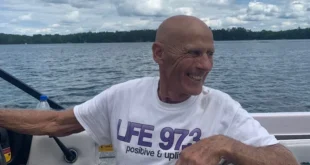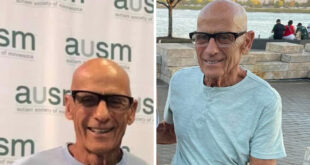A prosecutor appointed by La Paz County Attorney Tony Rogers is to remain on the job after a court challenge by three defendants who wanted him removed from their cases.
James Schilder is the prosecutor on a second-degree murder case currently on trial in the La Paz County Superior Court (Parker Live summarized that case HERE). He is at the current time a ‘Special Deputy County Attorney’, having signed a notarized Oath of Office, and is representing the County on several cases working their way through the system.
According to a ruling by Superior Court Judge Samuel Vederman, Schilder is a “volunteer prosecutor” who is donating his time to the County Attorney’s Office with no salary. Schilder states that he is doing so in order to “give back to the community because he has been fortunate in his life”. He is not being compensated for his work, according to the ruling, and is not affiliated with any Arizona prosecutorial agency or government agency except his work for the County Attorney’s Office.
A challenge to Schilder’s work as prosecutor was filed by three defendants, Jeffrey Carter, Craig Johnson and Jose Esteban Trejo, whose attorneys argue that Schilder’s role is improper, and raise questions about whether an unpaid volunteer who “proclaims that he is supervised by no-one and answers to no-one” can act for the elected County Attorney in court. The challenges also apparently mention that Schilder was not approved for this role by the County Board of Supervisors.
The judge’s ruling says that the Board of Supervisors’ approval is not necessary because Rogers is within his rights as County Attorney to make the appointment himself. “The primary purpose for board consent is to fix the salary of a deputy and Schilder does not receive a salary. In addition, the board has not withheld its consent; consent has simply not been requested by Rogers.”
The ruling also refuted the idea that Schilder reports to no-one, saying that because Rogers can revoke Schilder’s authority to act as a deputy, he has supervisory authority over him.
“Whether Rogers, and/or Schilder acknowledge it, or accept it, Schilder is being supervised by Rogers and he answers to Rogers. If Rogers chooses to abdicate his responsibility, by not supervising Schilder, and if Schilder continues to proclaim he is unsupervised, and answers to no one, this matter could potentially be addressed, individually and/or collectively, through the State Bar of Arizona, the criminal justice system, an impeachment, a recall election or a primary/general election.”
Ultimately the Court sided with Rogers, saying that the appointment of Schilder by Rogers is valid constitutionally and statutorily and that Rogers is Schilder’s direct supervisor and responsible for Schilder’s decisions and actions in that role.
The requests to disqualify him from the cases were denied. The jury trial on which Schilder is currently the prosecutor was expected to wrap up at the end of the week.
 Parker Live News from the Parker Strip since 2009.
Parker Live News from the Parker Strip since 2009.




